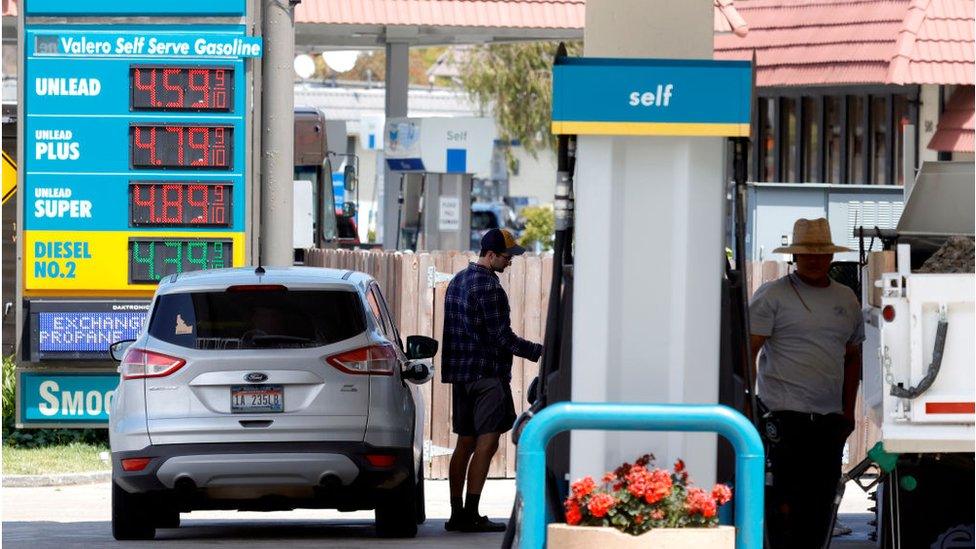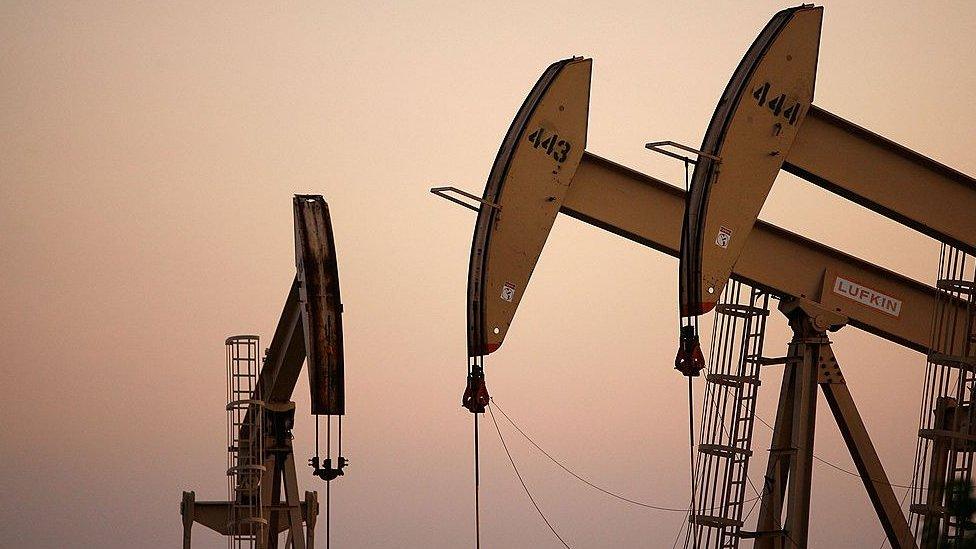White House urges action on oil as gasoline prices rise
- Published
- comments

The world's top oil producers must do more to help quell rising fuel prices or it could threaten the global recovery, the White House has said.
It said the price of oil was now higher than before the pandemic, leading to a spike in prices at the pump.
Last month, members of the Opec cartel and allies agreed to boost supply to help stabilise the situation, adding 400,000 barrels a day to their output.
But the White House said it was "simply not enough".
"While Opec+ recently agreed to production increases, these increases will not fully offset previous production cuts that Opec+ imposed during the pandemic until well into 2022," said Joe Biden's national security advisor, Joe Sullivan, in a statement.
"President Biden has made it clear he wants Americans to have access to affordable and reliable energy, including at the pump.
"Although we are not a party to Opec, the United States will always speak to international partners regarding issues of significance that affect out national economic and security affairs, in public and in private."
Oil prices fell sharply last year as the pandemic brought major economies around the world to a standstill.
But they have rebounded strongly as countries have reopened, with benchmark Brent crude trading at just under $70 a barrel on Wednesday - up nearly a third since the start of the year.
It's pushed up inflation, which was running at 5.4% in the 12 months to July, as energy prices surge.
In July, retail gasoline prices in the US were up 2.4% compared with June and some 41.8% compared with July 2020, according to the Labor Department.
Mr Sullivan's intervention comes three weeks after Opec countries such as Saudi Arabia, along with allies like Russia, agreed to boost output by 400,000 barrels per day each month from August.
The deal - designed to support both the global economy and the oil market - means the group's output will be restored to its pre-pandemic level by the end of 2022.
But it was hard won compromise after the UAE rejected calls to make cuts, threatening to scupper the deal.
On Wednesday, the White House also said it had asked the Federal Trade Commission (FTC), which polices anti-competitive behaviour in the US, to investigate whether illegal practices were contributing to higher US gasoline prices.
"During this summer's driving season, there have been divergences between oil prices and the cost of gasoline at the pump," Biden's top economic aide, Brian Deese, wrote in a letter to FTC chair Lina Khan.
He encouraged the FTC to "consider using all of its available tools to monitor the US gasoline market and address any illegal conduct".
Related topics
- Published18 July 2021
